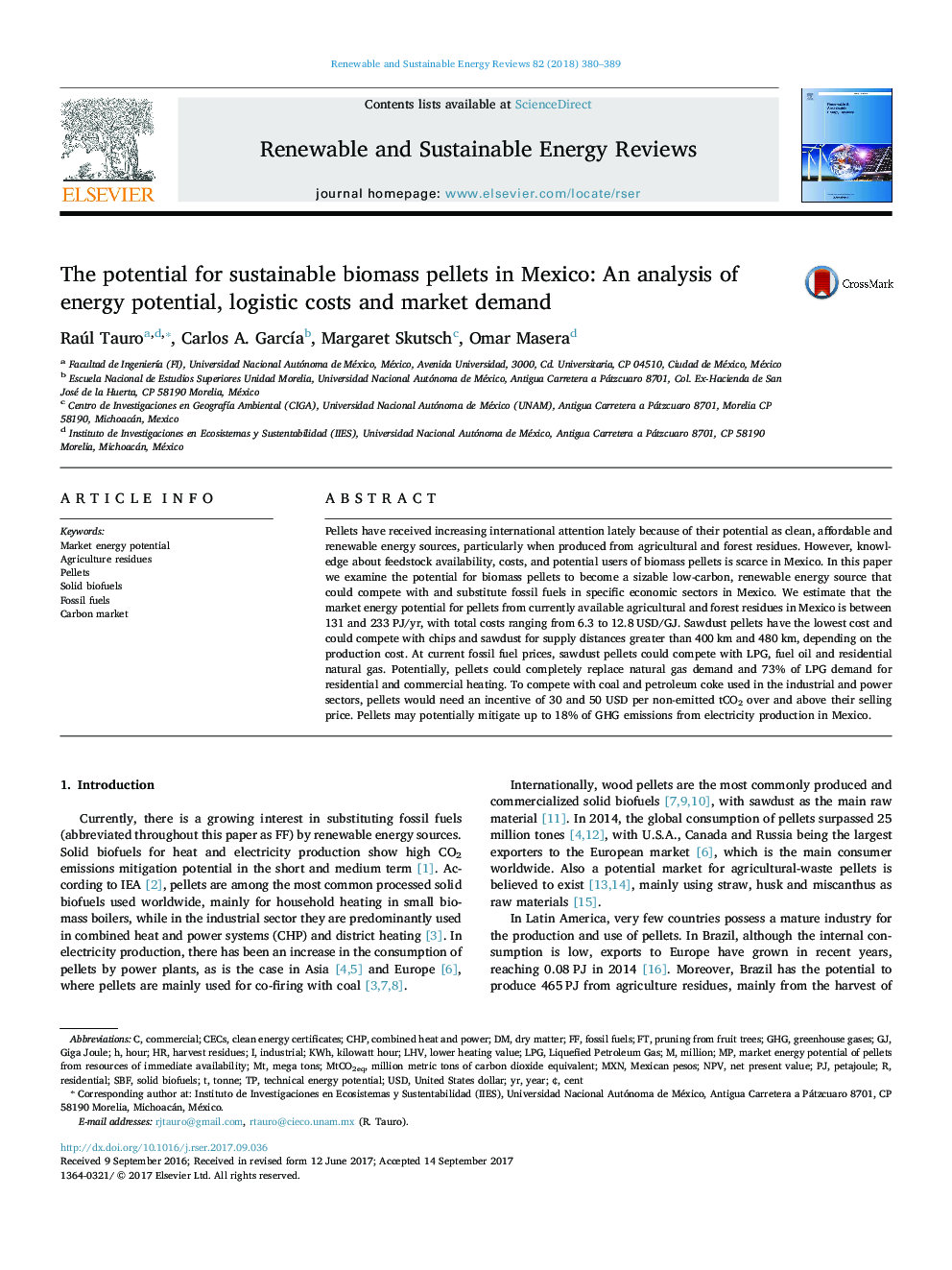| Article ID | Journal | Published Year | Pages | File Type |
|---|---|---|---|---|
| 5481874 | Renewable and Sustainable Energy Reviews | 2018 | 10 Pages |
Abstract
Pellets have received increasing international attention lately because of their potential as clean, affordable and renewable energy sources, particularly when produced from agricultural and forest residues. However, knowledge about feedstock availability, costs, and potential users of biomass pellets is scarce in Mexico. In this paper we examine the potential for biomass pellets to become a sizable low-carbon, renewable energy source that could compete with and substitute fossil fuels in specific economic sectors in Mexico. We estimate that the market energy potential for pellets from currently available agricultural and forest residues in Mexico is between 131 and 233Â PJ/yr, with total costs ranging from 6.3 to 12.8Â USD/GJ. Sawdust pellets have the lowest cost and could compete with chips and sawdust for supply distances greater than 400Â km and 480Â km, depending on the production cost. At current fossil fuel prices, sawdust pellets could compete with LPG, fuel oil and residential natural gas. Potentially, pellets could completely replace natural gas demand and 73% of LPG demand for residential and commercial heating. To compete with coal and petroleum coke used in the industrial and power sectors, pellets would need an incentive of 30 and 50 USD per non-emitted tCO2 over and above their selling price. Pellets may potentially mitigate up to 18% of GHG emissions from electricity production in Mexico.
Keywords
Related Topics
Physical Sciences and Engineering
Energy
Renewable Energy, Sustainability and the Environment
Authors
Raúl Tauro, Carlos A. GarcÃa, Margaret Skutsch, Omar Masera,
